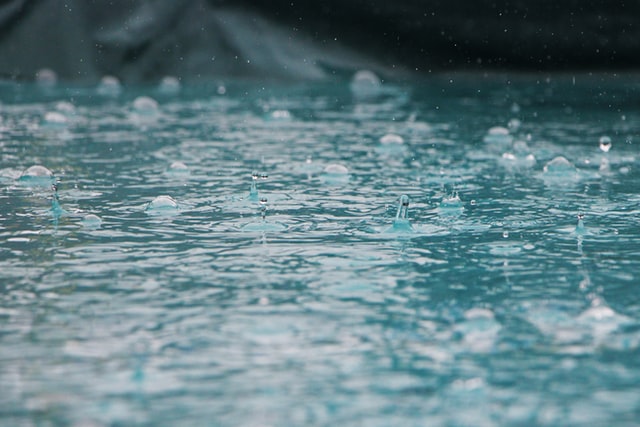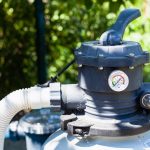How Your Local Pool Service Can Help With Rainwater
Wouldn’t it be wonderful if rain provided free water for your swimming pool? After splashing around in the evening you could just wait for the next rainy day to fill your pool back up to its normal level. However, this is too good to be true. Unfortunately, rainwater is known to have acidic properties. Rainfall can adversely affect the alkalinity and pH balance of your pool. But wait; before you start panicking about the swim you took after yesterday’s storm, contact your local pool service. They can help you understand how to get your alkalinity and pH balance back to normal.
What Does Rainwater Do To Your Pool?
First, let us explain why rain is acidic. Rain can contain trace amounts of nitric and sulfuric acid thanks to the industrial gasses stuck in the atmosphere. These gasses create acid rain, which typically has a pH value of 4.0. To put this in perspective: normal, clean rain generally has a pH value between 5.0 and 5.5 while swimming pool water should have a pH value between 7.0 and 8.0. That is more than a 3 level difference in acidity!
What happens is that rainwater causes pH levels to rise while the total alkalinity (TA) level falls. The rainwater dilutes the chlorine in the pool, making it less effective. With ineffective chlorine, germs can more easily spread and pH levels can rise even quicker. This can create a dangerous situation for swimmers, causing irritated skin and eyes. If you’re ever unsure whether your pool water is safe for swimming, contact your local pool service.
Not only can rainwater negatively affect the chemistry of your swimming pool; but it can also wash over your deck and roof. This could cause the acid rain to run off into your pool, carrying contaminants with it, resulting in more corrosive water. From damaging your pool’s plaster to cracking the ceramic, corrosive pool water can create quite the costly impact.
What Should You Do?
Your local pool service recommends frequently testing your pool water following heavy rain periods. You can check the pH and TA of your pool water by using a test strip before swimming. Usually pool water will bounce back to a balanced level after light rainfall. However, heavy rainfall can drastically alter your pool water chemistry.
In these cases, many will “shock” their pool in an effort to restore chemical balance. Yet, “shocking” the pool is not always necessary; instead, water circulation is critical. If water stays stagnant, bacteria and algae are in prime position to spread. That’s why it is important to make sure your pool water is constantly circulating. Depending on the amount of rainfall, anywhere between 5 to 10 hours of ongoing circulation is recommended. In addition, it would be a good idea to drain any excess water to return your pool to it’s regular level.
Rainwater Harvesting
You may not be able to let rain effortlessly fill your swimming pool back to its regular level; however, with a little extra work, you can cut costs by rain harvesting. This cost-effective water-saving method can be a great idea to make the most out of heavy rainfall. You just need to be super cautious considering rainwater’s acidity. If you’re going to use rainwater, it must be filtered completely from contaminants and debris. Having a water filtration system in place would be extremely helpful!
Where Can You Find A Local Pool Service?
The answer is easy: right here at Pool Operation Management! Our team of experts are eager to help you with all of your pool maintenance needs. Thanks to our training and products, you will be able to prevent rainwater from ruining your pool. Get in touch with one of our professionals today, or whenever you’re in need of a local pool service.








